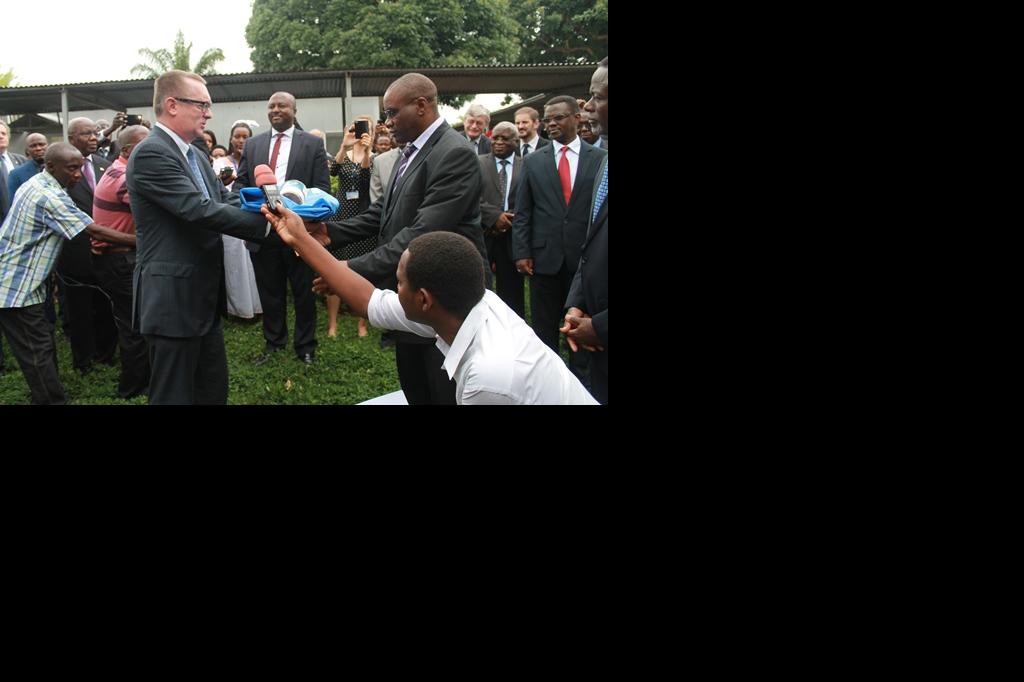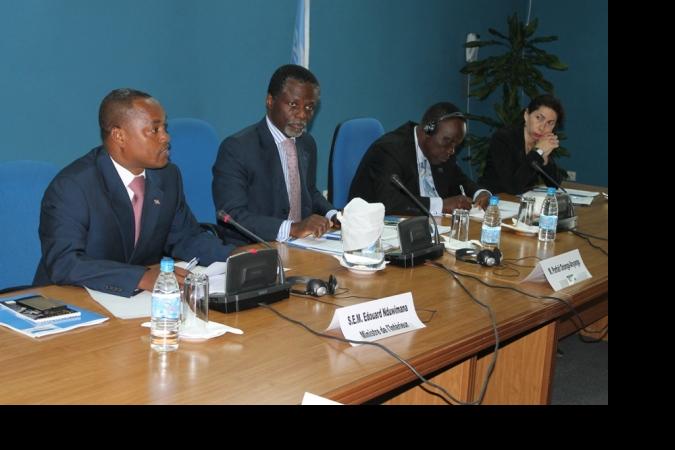28 January 2014 – The Secretary-General’s new report on Burundi is today discussed at the Security Council. Parfait Onanga-Anyanga, the Special Representative of the Secretary-General for Burundi will brief members on the latest developments in the country.
In his report, Ban Ki-moon notes that “Burundi enjoys peace and security, regional relations are deepening and development efforts are gathering pace”, which results from the substantial progress made by country since the end of the civil war.
However, the Secretary-general stresses that the significant gains are far from irreversible and calls upon the Government of Burundi to “demonstrate visionary leadership by continuing to promote the spirit of dialogue and consensus enshrined in the Arusha accords, which has helped Burundians to address the structural causes of conflict in their country”. “The presidential elections in 2015 will be a litmus test for the country’s longterm stability”.
Among positive developments are an open and inclusive political dialogue and the return of key opposition leaders and their inclusion in formal meetings that led to the adoption of several consensual political frameworks were notable developments. “However, the adoption of a number of restrictive laws and ongoing intimidation, harassment and violent attacks by youths affiliated with political parties contributed to decreasing political space and limited the ability of opposition actors to exercise their political freedoms ahead of the 2015 elections.”
On rule of law, the report reminds some positive developments were registered in the course of 2013, in the justice sector including a new criminal procedure code, “which conforms to international standards, that will enhance respect for the right of victims and defendants and improve oversight by prosecutors of the judicial police”. “However, the lack of progress in establishing an independent judiciary remains a concern”, the Secretary-general says in his report, adding that “no significant progress has been made towards the establishment of a truth and reconciliation commission since a draft law on such a commission was transmitted to the Parliament in December 2012.”
The document considers human rights situation a matter of concern owing to recurrent reported cases of extrajudicial killings, as well as acts of intimidation, harassment and violence.
In an appeal, the Secretary-General calls upon the Government to ensure that efforts to promote reconciliation and healing take root, including through the establishment of the much-anticipated truth and reconciliation commission. National and local efforts to promote conflict prevention and resolution and foster social cohesion are also required to prevent the erosion of Burundi’s hard-won gains.
Regarding the increasing tensions and intra-party disputes facing some of Burundi’s political parties, Ban Ki-moon urges all political parties and actors to refrain from using incendiary language and to peacefully resolve their differences through dialogue, in the interest of their own parties and for the sake of multiparty democracy in the country.
Ban Ki-moon also encourages “the Peacebuilding Commission to continue its efforts to sustain international support and mobilize resources for Burundi” and urges development partners to fill the funding gap for the implementation of Burundi’s second poverty reduction strategy, including, and as appropriate, through targeted budget support.
With respect to the United Nations Office in Burundi (BNUB), which mandate expires in mid- February 2014, the Secretary-General states that the UN presence remains necessary to further accompany the country in consolidating peace by facilitating dialogue, monitoring and reporting human rights, and establishing transitional justice mechanisms until after the presidential elections in 2015. “I appreciate the wish of the Government of Burundi to assert greater national ownership over its peace consolidation process. However, the Government’s request that BNUB draw down within six months as of 16 February 2014 poses a difficult dilemma, given the continuing need for a United Nations political presence whose functions cannot be entirely covered by the United Nations country team. I therefore recommend that the BNUB mandate be extended for a further period of 12 months”.
Addressing the Security Council, the Secretary-General is of view that “should the Government persist in its position”, the members may wish to consider two further options, namely “the drawdown of BNUB, which would be replaced by a new peacebuilding mission with a more focused mandate, as an interim step to preparing the ground for a transition of functions to the United Nations country team” or “the appointment of a special envoy to promote and facilitate dialogue between national actors and mechanisms for broad-based participation in political life.”






